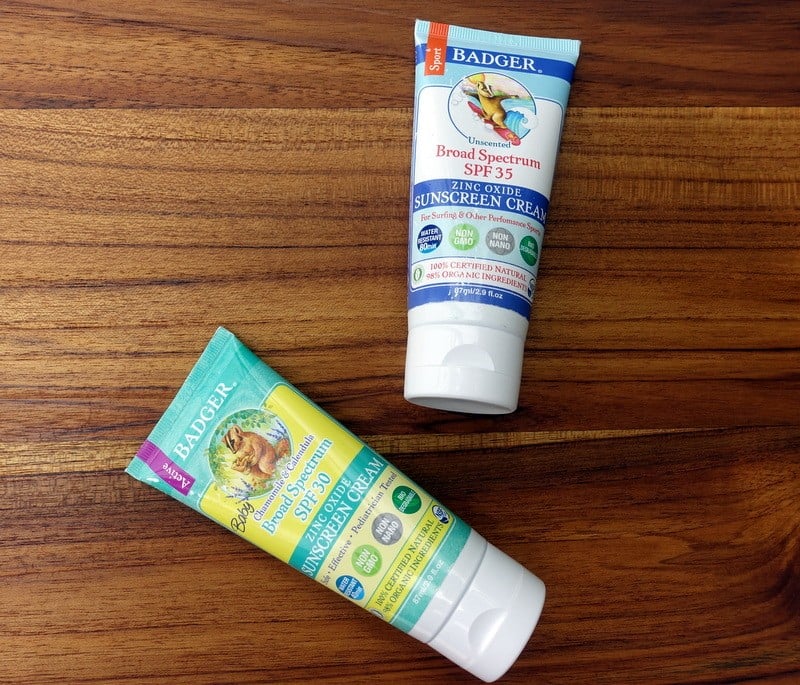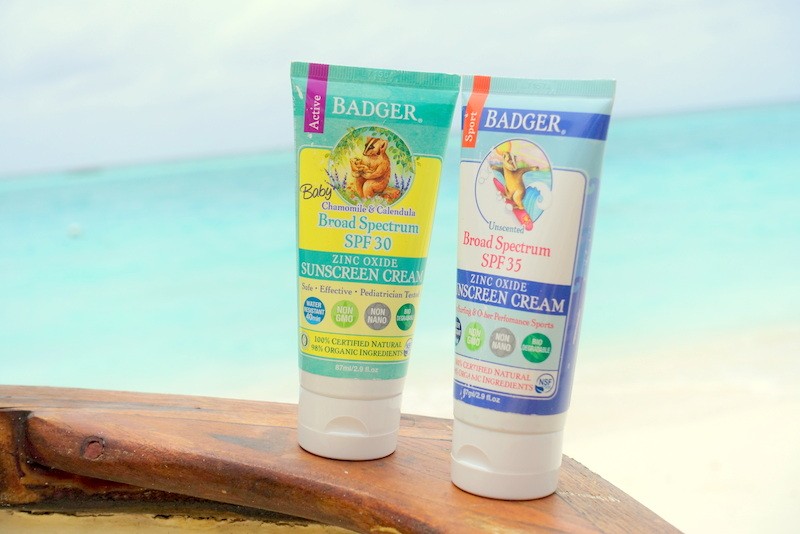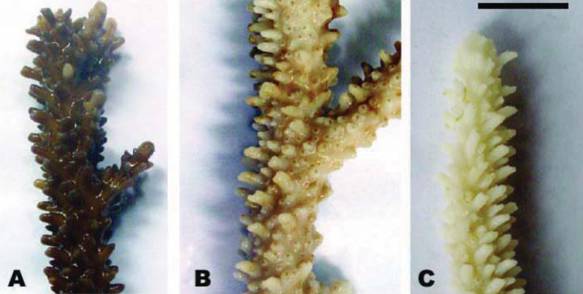Is it our health for theirs? Gili Lankanfushi begins an eco-sunscreen revolution.
Sun screen is a holiday essential – from children covered in a thick layer, to the bald spot on Dad’s head. We think sun screens are safe, but is this the reality? A key ingredient in more than 3,500 sun protection products is oxybenzone. This chemical is absorbed into our bloodstream, can cause allergic reactions and very worryingly was last tested as far back as the 1970’s. It is also possible that oxybenzone may act similarly to a related chemical, benzophenone which attacks DNA when illuminated, and can lead to cancer. Studies are currently being carried out. Annually four to six thousand tonnes of these chemicals enter our ocean through wastewater effluent, and by swimmers slathered up with sunscreen. Acting like an oil slick, the chemicals settle on marine life and the reefs become suffocated.
 |
| Reef safe sun screen with no oxybenzone |
Corals are animals called polyps that share their home with algae called zooxanthellae. They work together in a symbiotic relationship which means both parties benefit. The coral animal produces a skeleton to shelter the algae whilst building the reef and the algae through photosynthesis provide the coral animal with 95% of its food. In the Maldives, the reefs are under severe external pressure. Sun screen is an added significant hazard which threatens the resiliency of the coral to climate change.
 |
| Healthy coral with blue-green chromis population |
Bleaching is the term used when coral loses its symbiotic algae; this can happen for a variety of reasons. A study by R. Danovaro and a team of scientists showed that oxybenzone promotes latent viral growth in the symbiotic algae. In the study, fragments of coral were taken throughout the tropics and incubated with seawater containing small quantities of sunscreen (10 microlitres). Bleaching occurred within four days, whereas in the control group which had no sunscreen there was no bleaching. Water samples taken 18 – 48 hours after sunscreen exposure showed that the symbiotic algae, instead of being a healthy brown colour were pale/transparent and full of holes. Additionally viral particles were abundant; 15 times more viral particles where found in water samples exposed to sunscreen than in the control group. This suggests that the coral animal or algae contain a latent virus activated by chemicals in sunscreen. This latent infection is found globally. Oxybenzone is a photo-toxicant, which means that its negative effects are accelerated by light – something which the Maldives does not lack. In other studies, oxybenzone has been found to alter the larval stage of the coral from a healthy swimming state to a deformed motionless condition. It has also been found to cause DNA lesions and endocrine disruption, resulting in coral larvae encasing themselves in their skeletons and dying. The severity of this is proportional to chemical concentration.
In some parts of the world oxybenzone found on the surface has reached concentrations that indicate the potential for bio accumulation of this chemical within reef organisms. Since oxybenzone mimics oestrogen it is causing male fish to change into females. This has been particularly noticed in turbot and sole feeding near sewage outlets. Since a healthy fish population is vital for reef survival this feminisation of fish will have a devastating long term impact.
As the effects of sunscreen are becoming more apparent positive action is being taken. In Mexico, several marine reserves have banned the use of none marine safe sun protection products after high mortality was noted in reef organisms and currently Hawaii is trying to ban the sale of harmful sunscreen. In addition, the development of eco-friendly sunscreens is now booming.
We at Gili Lankanfushi want to become part of this movement and understand that we need to protect our delicate marine environment, which is why the boutique is now selling a range of marine safe products, so next time you are here please help us protect our reef!
 |
| Reef safe sun screen that Gili Lankanfushi sells in the Boutique |
Please refer to this link for more information and to purchase reef safe sunscreen.
